Recovery after surgery places unique demands on the body, requiring careful attention to diet and nutrient intake. Since traditional meals may be difficult to consume in the early stages of healing, many patients turn to supplements that are easier to digest yet rich in essential nutrients. Choosing protein shakes tailored for post-surgery nutrition ensures that individuals receive the right balance of protein, vitamins, and minerals to support muscle repair, energy, and overall recovery. These specially formulated shakes are designed to meet specific medical needs while being gentle on the digestive system. With proper use, they become an essential part of a smooth and effective healing journey.
Overconsumption of Protein
 One of the most common mistakes is assuming that more protein automatically leads to faster healing. Consuming excessive amounts of protein can place unnecessary strain on the kidneys and digestive system, particularly in patients who are still recovering. It is essential to follow medical or nutritional guidance regarding daily protein intake to ensure balance without overloading the body.
One of the most common mistakes is assuming that more protein automatically leads to faster healing. Consuming excessive amounts of protein can place unnecessary strain on the kidneys and digestive system, particularly in patients who are still recovering. It is essential to follow medical or nutritional guidance regarding daily protein intake to ensure balance without overloading the body.
Choosing the Wrong Type of Shake
Not all protein shakes are created equal, and selecting the wrong type can affect recovery. Some commercial shakes contain high levels of sugar, artificial additives, or unnecessary calories that can slow healing or hinder weight management after surgery. For recovery, patients should prioritize shakes made with high-quality protein sources, such as whey, soy, or plant-based proteins, and avoid products with excessive sweeteners or fillers.
Ignoring Digestive Tolerance
After surgery, especially bariatric procedures, the digestive system may be more sensitive. Ignoring signs of intolerance—such as bloating, discomfort, or nausea—can make recovery harder. Some patients may not tolerate lactose-based shakes, in which case lactose-free or plant-based options are better alternatives. Listening to the body and making adjustments ensures protein intake supports healing without causing unnecessary stress.
Skipping Other Nutritional Needs

While protein is vital, relying solely on protein shakes without incorporating other nutrients is another common mistake. The body also needs vitamins, minerals, healthy fats, and carbohydrates to fully recover. Patients should use protein shakes as a supplement, not a replacement for a balanced diet. Pairing them with nutrient-rich meals and recommended supplements ensures comprehensive support for healing.
Inconsistent Intake
Recovery requires consistency, and skipping protein shakes or consuming them irregularly can limit their effectiveness. The body needs a steady supply of protein to repair tissues and preserve muscle mass. Patients should aim to integrate protein shakes into their daily routine, spreading intake throughout the day to optimize absorption and healing benefits.
Protein shakes are an effective tool for recovery, but avoiding mistakes such as overconsumption, poor product selection, ignoring digestive tolerance, neglecting other nutrients, and inconsistent intake is essential. By using protein shakes wisely, patients can maximize their healing, maintain strength, and support overall well-being during recovery. A balanced, thoughtful approach ensures these shakes contribute positively to long-term health and surgical success.










 Blurred or distorted vision can be disorienting and frustrating. It might feel as if you’re gazing through a foggy window, making everyday tasks challenging. This condition can stem from various causes. Common culprits include refractive errors like nearsightedness or farsightedness, but it could also signal more serious issues such as cataracts or macular degeneration. Don’t ignore if you notice that your vision appears wavy or objects seem out of focus. These changes may indicate an underlying problem that requires immediate attention. Prompt evaluation by an eye specialist can help determine the cause and guide you toward appropriate treatment options.
Blurred or distorted vision can be disorienting and frustrating. It might feel as if you’re gazing through a foggy window, making everyday tasks challenging. This condition can stem from various causes. Common culprits include refractive errors like nearsightedness or farsightedness, but it could also signal more serious issues such as cataracts or macular degeneration. Don’t ignore if you notice that your vision appears wavy or objects seem out of focus. These changes may indicate an underlying problem that requires immediate attention. Prompt evaluation by an eye specialist can help determine the cause and guide you toward appropriate treatment options. Red or bloodshot eyes can be alarming. They often signal irritation or strain. But what causes this common issue? Allergies are a frequent culprit, prompting the body to react with inflammation. Dust, pollen, and pet dander might make your eyes appear redder than usual. Another reason could be lack of sleep. Fatigue takes a toll on your overall health; your eyes reflect that weariness through redness. Taking care of your eyes is essential for maintaining a good quality of life. Recognizing the signs that indicate you should consult an eye specialist can make all the difference in preserving your vision.
Red or bloodshot eyes can be alarming. They often signal irritation or strain. But what causes this common issue? Allergies are a frequent culprit, prompting the body to react with inflammation. Dust, pollen, and pet dander might make your eyes appear redder than usual. Another reason could be lack of sleep. Fatigue takes a toll on your overall health; your eyes reflect that weariness through redness. Taking care of your eyes is essential for maintaining a good quality of life. Recognizing the signs that indicate you should consult an eye specialist can make all the difference in preserving your vision.
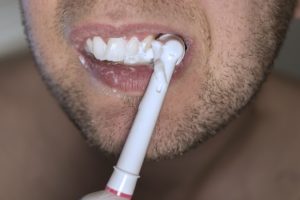 Our mouths are home to a bustling community of microorganisms, collectively known as the oral microbiome. While this may sound like something out of a science fiction movie, it’s actually a completely natural and essential part of our overall health. Within this complex ecosystem, there are both beneficial and harmful bacteria living side by side. When the balance between these two types is disrupted, it can lead to various oral health issues such as tooth decay, gum disease, and bad breath.
Our mouths are home to a bustling community of microorganisms, collectively known as the oral microbiome. While this may sound like something out of a science fiction movie, it’s actually a completely natural and essential part of our overall health. Within this complex ecosystem, there are both beneficial and harmful bacteria living side by side. When the balance between these two types is disrupted, it can lead to various oral health issues such as tooth decay, gum disease, and bad breath.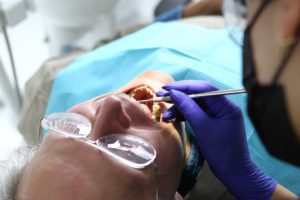 The connection between oral health and overall health is a topic of growing interest in the medical community. And one area where this link becomes particularly evident is in the relationship between oral health and respiratory health. When we think about our respiratory system, we often focus on our lungs and airways. But did you know that the mouth can also play a crucial role in keeping our respiratory system healthy? Maintaining good oral hygiene helps prevent infections such as pneumonia. By keeping the oral microbiome in balance, reducing inflammation, promoting good nutritional status, and supporting respiratory health, we can improve our immune response and protect ourselves against various diseases.
The connection between oral health and overall health is a topic of growing interest in the medical community. And one area where this link becomes particularly evident is in the relationship between oral health and respiratory health. When we think about our respiratory system, we often focus on our lungs and airways. But did you know that the mouth can also play a crucial role in keeping our respiratory system healthy? Maintaining good oral hygiene helps prevent infections such as pneumonia. By keeping the oral microbiome in balance, reducing inflammation, promoting good nutritional status, and supporting respiratory health, we can improve our immune response and protect ourselves against various diseases.

 A vegan diet can also help reduce inflammation in the body. Chronic inflammation can lead to fatigue, muscle soreness and decreased performance during exercise. By consuming a
A vegan diet can also help reduce inflammation in the body. Chronic inflammation can lead to fatigue, muscle soreness and decreased performance during exercise. By consuming a  A vegan diet can help avoid common allergens such as dairy and eggs, which can cause digestive issues and decrease endurance and stamina during exercise. Digestive problems can occur when lactose or other milk components are not well-tolerated. This can lead to bloating, stomach cramps, diarrhea, and other digestive discomforts. By avoiding these allergens, athletes can maintain better overall health, reduce inflammation, and increase endurance and stamina during exercise.
A vegan diet can help avoid common allergens such as dairy and eggs, which can cause digestive issues and decrease endurance and stamina during exercise. Digestive problems can occur when lactose or other milk components are not well-tolerated. This can lead to bloating, stomach cramps, diarrhea, and other digestive discomforts. By avoiding these allergens, athletes can maintain better overall health, reduce inflammation, and increase endurance and stamina during exercise.
 One of the most obvious signs that it’s time to replace your disposable vape device is when you start to notice a burnt taste. This happens when the device’s coils begin to wear out and can no longer heat the e-liquid properly.
One of the most obvious signs that it’s time to replace your disposable vape device is when you start to notice a burnt taste. This happens when the device’s coils begin to wear out and can no longer heat the e-liquid properly. Most disposable vape devices have a puff count limit, which is the number of puffs you can take before the device needs to be replaced.
Most disposable vape devices have a puff count limit, which is the number of puffs you can take before the device needs to be replaced.
 Unfortunately, many people do not hesitate to give out
Unfortunately, many people do not hesitate to give out  It is vital to note that you will get different types of medical advice online. Some will be from well-qualified doctors with years of experience. Others will come from people who are not qualified to give medical advice. Before taking any medical advice online, you must know the difference between these two sources.
It is vital to note that you will get different types of medical advice online. Some will be from well-qualified doctors with years of experience. Others will come from people who are not qualified to give medical advice. Before taking any medical advice online, you must know the difference between these two sources.
 A lot of individuals have discovered how much the ketogenic diet plan can help in weight reduction. Lipids are the fats in the body that may be utilized as a substitute energy source rather than the sugar that’s been stored in foods. This not only makes it possible to lose fat but can also be helpful to your gut area and may dramatically reduce your risk of cardiovascular disease and diabetes. In reality, this is among many reasons why lots of men and women change into a keto diet.
A lot of individuals have discovered how much the ketogenic diet plan can help in weight reduction. Lipids are the fats in the body that may be utilized as a substitute energy source rather than the sugar that’s been stored in foods. This not only makes it possible to lose fat but can also be helpful to your gut area and may dramatically reduce your risk of cardiovascular disease and diabetes. In reality, this is among many reasons why lots of men and women change into a keto diet. The intestines and your digestive tract have the very best neural network from the body following your brain. These kinds of nerves inside the gut compose the enteric nervous system. It is also where a lot of our main neurotransmitters are generated, like dopamine and gamma-aminobutyric acid, which help control feelings of enjoyment, anxiety, and nervousness.
The intestines and your digestive tract have the very best neural network from the body following your brain. These kinds of nerves inside the gut compose the enteric nervous system. It is also where a lot of our main neurotransmitters are generated, like dopamine and gamma-aminobutyric acid, which help control feelings of enjoyment, anxiety, and nervousness.

 This fixative is a plasticizer added to many plastic products to keep them from becoming brittle. They are commonly used in perfumes, makeup, and other health products. They are also known as endocrine disruptors and can cause hormonal imbalances and reproductive problems. Sometimes this means researching what these elements are, even if they are long and difficult to pronounce. Instead of these chemicals, it is best to turn to cleaner, safer attraction products that are vegan, cruelty-free, organic, pristine, and natural. However, people might not be aware of the side effects of this element.
This fixative is a plasticizer added to many plastic products to keep them from becoming brittle. They are commonly used in perfumes, makeup, and other health products. They are also known as endocrine disruptors and can cause hormonal imbalances and reproductive problems. Sometimes this means researching what these elements are, even if they are long and difficult to pronounce. Instead of these chemicals, it is best to turn to cleaner, safer attraction products that are vegan, cruelty-free, organic, pristine, and natural. However, people might not be aware of the side effects of this element.

 Currently, a Drop Jump or a Shock Drop is when you jump from a box and just take the energy minus the next jump into the atmosphere, and a Box Jump is just when you jump from the ground into the atmosphere. Again, you have the Depth Drop and the Shock Drop, which are pretty much the same thing, some might make a difference. By taking advantage of gravity, this jump workout is different from regular aerobic exercise. It makes significant use of the laws of physics. Therefore, you must have sufficient flexibility and strength before performing these exercises. The extreme force exerted on the joints can lead to structural injuries if the body is not careful.
Currently, a Drop Jump or a Shock Drop is when you jump from a box and just take the energy minus the next jump into the atmosphere, and a Box Jump is just when you jump from the ground into the atmosphere. Again, you have the Depth Drop and the Shock Drop, which are pretty much the same thing, some might make a difference. By taking advantage of gravity, this jump workout is different from regular aerobic exercise. It makes significant use of the laws of physics. Therefore, you must have sufficient flexibility and strength before performing these exercises. The extreme force exerted on the joints can lead to structural injuries if the body is not careful. These three jumping training is a very important exercise because it instructs you to do everything you do in athletic competition, taking the pressure and then transferring that force into the atmosphere. Now, gross jumps do a few different things, but they increase the Achilles tendon’s stiffness and different regions of the body to absorb pressure properly. Currently, if that tendon isn’t stiff enough, if it’s too soft, then you’re probably not going to have the ability to transfer energy fast enough to do most of the force that’s implemented on the ground.
These three jumping training is a very important exercise because it instructs you to do everything you do in athletic competition, taking the pressure and then transferring that force into the atmosphere. Now, gross jumps do a few different things, but they increase the Achilles tendon’s stiffness and different regions of the body to absorb pressure properly. Currently, if that tendon isn’t stiff enough, if it’s too soft, then you’re probably not going to have the ability to transfer energy fast enough to do most of the force that’s implemented on the ground.
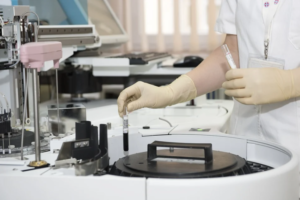 Unsatisfactory feelings during treatment are not sufficient to show that the physician is responsible. The patient must show that the physician was negligent in fulfilling his or her obligations regarding diagnosis or treatment. To acquire a malpractice claim, it is essential to prove the harm caused to the person by the health care providers. An experienced attorney will provide the best legal advice, address the details of the situation, and help obtain justifiable damages.
Unsatisfactory feelings during treatment are not sufficient to show that the physician is responsible. The patient must show that the physician was negligent in fulfilling his or her obligations regarding diagnosis or treatment. To acquire a malpractice claim, it is essential to prove the harm caused to the person by the health care providers. An experienced attorney will provide the best legal advice, address the details of the situation, and help obtain justifiable damages. Find a substitute system; during this time you should contact your physician and seek medical attention. Instead, you might seek out a service company that experiences your circumstances. This way, you will have sufficient heartfelt assistance during the constitutional process. Also, talk to your attorney; you must participate in the legal process, as this will help you feel in control. Follow all the instructions that your medical malpractice attorney gives you.
Find a substitute system; during this time you should contact your physician and seek medical attention. Instead, you might seek out a service company that experiences your circumstances. This way, you will have sufficient heartfelt assistance during the constitutional process. Also, talk to your attorney; you must participate in the legal process, as this will help you feel in control. Follow all the instructions that your medical malpractice attorney gives you. 
 Sleep is essential to our health generally. It is fantastic for our psychological, physical, and psychological equilibrium. The importance of sleep can not ever be overemphasized, which explains the reason why it’s a no-brainer that physicians say it is crucial for the
Sleep is essential to our health generally. It is fantastic for our psychological, physical, and psychological equilibrium. The importance of sleep can not ever be overemphasized, which explains the reason why it’s a no-brainer that physicians say it is crucial for the  Exfoliating is among the most well-known approaches to eliminate dead skin cells and reveal smoother skin beneath. To eliminate the traces, a lot of individuals use anti-aging goods. But dermatologists recommend using anti-aging skincare goods since you mustn’t aggravate your face using harsh chemical products that your face. Experts information utilizing anti-aging skincare products such as organic ingredients aids the skin’s capacity to cell renewal resulting in a more moisturized skin.
Exfoliating is among the most well-known approaches to eliminate dead skin cells and reveal smoother skin beneath. To eliminate the traces, a lot of individuals use anti-aging goods. But dermatologists recommend using anti-aging skincare goods since you mustn’t aggravate your face using harsh chemical products that your face. Experts information utilizing anti-aging skincare products such as organic ingredients aids the skin’s capacity to cell renewal resulting in a more moisturized skin. Based on Dr. Nussbaumthey are especially important for skin and protect the skin from environmental toxins that harm skin cells. According to specialists, eating healthful fats like almonds, avocado, nuts, olive oil, etc, help to boost the epidermis. Along with assisting your body to absorb vitamins, Omega-3 fatty acids encourage smoother, skincare skin by decreasing inflammatory skin conditions such as psoriasis and acne. Have you got any anti-aging patterns and suggestions that work also?
Based on Dr. Nussbaumthey are especially important for skin and protect the skin from environmental toxins that harm skin cells. According to specialists, eating healthful fats like almonds, avocado, nuts, olive oil, etc, help to boost the epidermis. Along with assisting your body to absorb vitamins, Omega-3 fatty acids encourage smoother, skincare skin by decreasing inflammatory skin conditions such as psoriasis and acne. Have you got any anti-aging patterns and suggestions that work also?
 A well-designed children’s toy can provide a lot of fun and stimulate development in at least one of these areas. By playing with a toy with a predetermined amount of time and a single outcome. The child is not stimulated to think about a problem. For example, a playhouse can become anything from a hospital to a store to a remote control station for later use in the environment. This is one of the main reasons why many parents should introduced this type of toys at the right age. This can be a big factor that can help your child.
A well-designed children’s toy can provide a lot of fun and stimulate development in at least one of these areas. By playing with a toy with a predetermined amount of time and a single outcome. The child is not stimulated to think about a problem. For example, a playhouse can become anything from a hospital to a store to a remote control station for later use in the environment. This is one of the main reasons why many parents should introduced this type of toys at the right age. This can be a big factor that can help your child. Traditional children’s toys also have their advantages when it comes to promoting physical skills. A child’s physical development can be divided into two main classes: gross motor skills (these are the maturation of huge muscles so that we are ready to run, jump and move). For several years, modest conventional toys, such as shape sorters and shake and hammer seats, have been excellent for helping hand-eye coordination and small muscle development, and bicycles, tricycles, and scooters are exceptional for producing measurement.
Traditional children’s toys also have their advantages when it comes to promoting physical skills. A child’s physical development can be divided into two main classes: gross motor skills (these are the maturation of huge muscles so that we are ready to run, jump and move). For several years, modest conventional toys, such as shape sorters and shake and hammer seats, have been excellent for helping hand-eye coordination and small muscle development, and bicycles, tricycles, and scooters are exceptional for producing measurement.

 Minoxidil is a medication that has been found to combat male pattern baldness. Patients and health care professionals, such as doctors, are finding that hair growth has been experienced by patients as a negative effect of the drug. The minoxidil company saw it as a great way to make money, so they decided to get a topical treatment. How Minoxidil makes hair grow is completely unknown. However, Minoxidil is known to stop hair loss by preventing DHT from reaching the hair follicles and scalp.
Minoxidil is a medication that has been found to combat male pattern baldness. Patients and health care professionals, such as doctors, are finding that hair growth has been experienced by patients as a negative effect of the drug. The minoxidil company saw it as a great way to make money, so they decided to get a topical treatment. How Minoxidil makes hair grow is completely unknown. However, Minoxidil is known to stop hair loss by preventing DHT from reaching the hair follicles and scalp.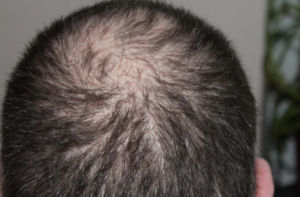 Minoxidil also includes a large number of adverse reactions. One of the most serious adverse reactions to this product is skin irritation. Itchy skin, dryness, and redness are the most common causes of adverse reactions to this product. Therefore, if you have sensitive skin, the use of this medicine or product may not be ideal for you. The use of Minoxidil has had some unwanted effects.
Minoxidil also includes a large number of adverse reactions. One of the most serious adverse reactions to this product is skin irritation. Itchy skin, dryness, and redness are the most common causes of adverse reactions to this product. Therefore, if you have sensitive skin, the use of this medicine or product may not be ideal for you. The use of Minoxidil has had some unwanted effects.


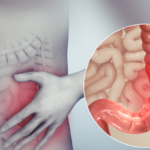


 Along with the sort of home-made
Along with the sort of home-made  Most pet animals need everyday strolls and investigations that license them to play and associate with different little dogs. Not every one of them requires a similar actual activity level. A few strains that were used as work canines likewise should accumulate the entirety of their energy. Others are quieter. Notwithstanding, dogs also require actual exercise to keep up their bones, hearts, and muscles in a phenomenal structure. Before long, your vet will be successful at disclosing to you exactly how much actual movement that your pet must do depends on its ascribes. What ought to be apparent is that walks aren’t just to get your pet from the house to pee and regurgitation.
Most pet animals need everyday strolls and investigations that license them to play and associate with different little dogs. Not every one of them requires a similar actual activity level. A few strains that were used as work canines likewise should accumulate the entirety of their energy. Others are quieter. Notwithstanding, dogs also require actual exercise to keep up their bones, hearts, and muscles in a phenomenal structure. Before long, your vet will be successful at disclosing to you exactly how much actual movement that your pet must do depends on its ascribes. What ought to be apparent is that walks aren’t just to get your pet from the house to pee and regurgitation.
 Learning CPR and first aid can save a person’s life, especially the lives of the little ones (children) you love and care for. The CPR course for parents includes learning the correct methods to perform CPR on a child or infant correctly. This increases the survival rate. This will improve your confidence and help you act quickly and without hesitation when disaster is imminent for your child.
Learning CPR and first aid can save a person’s life, especially the lives of the little ones (children) you love and care for. The CPR course for parents includes learning the correct methods to perform CPR on a child or infant correctly. This increases the survival rate. This will improve your confidence and help you act quickly and without hesitation when disaster is imminent for your child. In most mature circumstances, CPR is necessary to obtain SCA (sudden cardiac arrest) due to a heart attack, while infants and children need CPR due to respiratory problems. These problems can also cause cardiac arrest, which can be fatal if not detected. As a parent, be sure to perform CPR if you know that your child’s breathing or heartbeat is suddenly stopping.
In most mature circumstances, CPR is necessary to obtain SCA (sudden cardiac arrest) due to a heart attack, while infants and children need CPR due to respiratory problems. These problems can also cause cardiac arrest, which can be fatal if not detected. As a parent, be sure to perform CPR if you know that your child’s breathing or heartbeat is suddenly stopping.

 You may have observed yoga pros repeatedly making this pose on TV as it is a surefire approach to operate on multiple muscles in precisely the same moment. Additionally, it is effortless to execute. Sit and put your palms on your thighs. This is supposed to be your initial place. From here, lean forward with your face downwards and arms outstretched on the ground before you.
You may have observed yoga pros repeatedly making this pose on TV as it is a surefire approach to operate on multiple muscles in precisely the same moment. Additionally, it is effortless to execute. Sit and put your palms on your thighs. This is supposed to be your initial place. From here, lean forward with your face downwards and arms outstretched on the ground before you.







 Your job as the teacher isn’t to work out for cash. It’s to instruct, inspire, motivate, and encourage your pupils in exercise and their wellness. They are getting paid to work teaching out. There’s a big difference between the often under-calculated gap between “attending classes” and”instruction courses.” When thinking about the career, a lot of men and women try their hand in fitness education and fail because at the end of the day, they are not
Your job as the teacher isn’t to work out for cash. It’s to instruct, inspire, motivate, and encourage your pupils in exercise and their wellness. They are getting paid to work teaching out. There’s a big difference between the often under-calculated gap between “attending classes” and”instruction courses.” When thinking about the career, a lot of men and women try their hand in fitness education and fail because at the end of the day, they are not 
 During the search, you should consider what your budget allows and what exactly your insurance coverage is. It is essential to ensure and consider what the insurance company will think in terms of some may not insure professionals at work or of some kind.
During the search, you should consider what your budget allows and what exactly your insurance coverage is. It is essential to ensure and consider what the insurance company will think in terms of some may not insure professionals at work or of some kind. The dentist you choose to complete your research, and questions must be a dentist you can trust. Because everything can be overlooked if your doctor is not a doctor and you want to live with him, you can spend a lot of money. This is why you should see a doctor if you have researched friends and family or on the World Wide Web. It is important that you establish a relationship and that your needs can be investigated.
The dentist you choose to complete your research, and questions must be a dentist you can trust. Because everything can be overlooked if your doctor is not a doctor and you want to live with him, you can spend a lot of money. This is why you should see a doctor if you have researched friends and family or on the World Wide Web. It is important that you establish a relationship and that your needs can be investigated.
 They often prevent problems such as high cholesterol, high blood pressure, angina pectoris, heart attack and stroke, because vegetarians eat fewer animal fats. Lower cholesterol levels maintain the blood flow through the body and do not burden it. It has been shown time and again that a vegetarian diet can protect the body. Cutting meat can reduce the risk of various types of cancer. Many vegetables and fruits have been enriched with vitamins that have antioxidant properties and can effectively remove toxins and free radicals. Vegetables can make the body strong.
They often prevent problems such as high cholesterol, high blood pressure, angina pectoris, heart attack and stroke, because vegetarians eat fewer animal fats. Lower cholesterol levels maintain the blood flow through the body and do not burden it. It has been shown time and again that a vegetarian diet can protect the body. Cutting meat can reduce the risk of various types of cancer. Many vegetables and fruits have been enriched with vitamins that have antioxidant properties and can effectively remove toxins and free radicals. Vegetables can make the body strong.
 Many people might have realized that eating more and more vegetables and fruits can help them be healthier. However, the ultimate way to the effectiveness of the dietary plan relies upon how people can give up any animal food-based diet. It is not only useful to not getting attached to any saturated fat, antibiotics, and hormones of animals but also to help their population live longer. Take a look at some benefits of a vegan diet to weigh in your daily dietary consumption in a better plan.
Many people might have realized that eating more and more vegetables and fruits can help them be healthier. However, the ultimate way to the effectiveness of the dietary plan relies upon how people can give up any animal food-based diet. It is not only useful to not getting attached to any saturated fat, antibiotics, and hormones of animals but also to help their population live longer. Take a look at some benefits of a vegan diet to weigh in your daily dietary consumption in a better plan. If you cut animal products into your diet, all that remains are foods that were created to improve health. All vegetarian food varying from green leaves, nuts, seeds, and whole-grain are known as high nutrient food. They are the best source of vitamin C, fiber, protein, antioxidants, and their essential part is their low fat. This way, you can manage your nutrition while resulting in an effective weight loss of at least two or three pounds without even trying. Unfortunately, vegetarianism is not a magic diet that can suddenly make you healthier. You might be tempted to eat unhealthy vegetarian food, such as soy milk, ice cream, Oreos, and chips. Focus on the whole plant-based more would be a perfect way to manage better nutrition for your body.
If you cut animal products into your diet, all that remains are foods that were created to improve health. All vegetarian food varying from green leaves, nuts, seeds, and whole-grain are known as high nutrient food. They are the best source of vitamin C, fiber, protein, antioxidants, and their essential part is their low fat. This way, you can manage your nutrition while resulting in an effective weight loss of at least two or three pounds without even trying. Unfortunately, vegetarianism is not a magic diet that can suddenly make you healthier. You might be tempted to eat unhealthy vegetarian food, such as soy milk, ice cream, Oreos, and chips. Focus on the whole plant-based more would be a perfect way to manage better nutrition for your body.